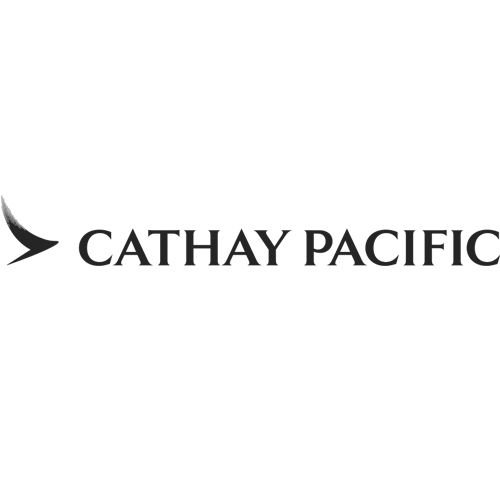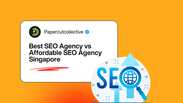Digital Marketing Agency vs Advertising Agency in Singapore
- Oct 22, 2025
- 5 min read
Updated: Nov 24, 2025
If you’re choosing between a digital marketing agency singapore and an advertising agency in Singapore, you’re really deciding between two strengths: a conversion engine that optimises weekly, and a brand platform that makes you memorable for years. The right pick depends on your goals, timeline, budget, and what your in-house team already covers.

This guide keeps it practical what each partner actually does, where each model wins, typical budgets and timelines, common pitfalls, and a simple way to blend both without wasting spend.
What Each Partner Actually Does
Digital marketing agency
Runs the channels that turn attention into leads/sales: Google Ads, Meta/IG, SEO and content, CRO (conversion rate optimisation), email/automation, analytics (GA4/GTM).
Works in sprints, shipping frequent tests across ads, creative, and landing pages.
Measures success with CPA/CAC, ROAS/MER, payback, and for B2B: SQLs, opportunities, revenue.
Advertising agency
Builds the brand platform: positioning, message architecture, visual identity, campaign concepts, film/TVC, OOH/print, social concepts, brand guidelines.
Leads big ideas and cultural storytelling that drive distinctiveness and long-term recall.
Measures success with reach, brand lift, distinctiveness, and creative effectiveness.
Head-to-Head
Speed to measurable revenue → Digital agency Need pipeline in 4–8 weeks? A digital advertising agency singapore launches SEM/Meta, fixes tracking and landers, and iterates weekly. You’ll see lead/purchase metrics move early if page/message match is tight.
Distinctive brand platforms → Advertising agency If you’re rebranding, entering a new category, or need a big cultural moment, an ad agency excels narrative, visual systems, hero films, and toolkits for all markets.
Always-on optimisation → Digital agency Digital thrives on cut / keep / scale: kill weak ideas, protect steady performers, and scale winners with fresh creative and better landing pages.
Mass awareness & partnerships → Advertising agency Large productions, OOH, PR integration, and brand-level collabs are handled best by ad agencies with production networks and craft depth.
Singapore Buyer Scenarios
SME or scale-up needing pipeline fast Start with a digital advertising companies in singapore: launch Google/Meta, build one top-notch BOFU (bottom-of-funnel) landing page, fix forms/speed, and report weekly in CPA/CAC and payback. Add brand assets once unit economics hold.
Rebrand or major category launch Lead with an advertising agency for positioning, message house, and master campaign. Pair a digital partner to convert lift during launch (search capture, remarketing, CRO).
Ecommerce with 100–3,000 SKUs Digital first: Shopping/PMax with clean feeds, UGC/Reels for Meta, and ongoing CRO. Consider brand films later to widen reach once product-level ROAS is stable.
Enterprise with multiple stakeholders and markets Hybrid: ad agency sets the global platform; a digital partner localises performance (SG/MY/ID), owns analytics governance, and turns the brand story into conversions.
What to Ask on Intro Calls
“Show one win and one stumble.” What did they stop and why? Mature partners share misses and learnings.
“Walk me through last month’s change log and impact.” You want evidence of shipping, not just strategy slides.
“Share an ad-to-landing pair (or film-to-landing path).” Does the promise in creative appear above the fold on the page with proof and a clear next step?
“Who owns tracking/CRO tickets and how fast do fixes ship?” Strategy dies without velocity.
“How will you report payback/MER/SQLs (not just reach or CTR)?” If the scoreboard doesn’t lead to decisions, it’s theatre.
Deliverables You Should Expect
From a digital marketing agency
GA4/GTM hygiene and a KPI tree (CPA, ROAS/MER, payback).
SEM/paid social builds with lean structure and weekly tests.
SEO agency plan: technical fixes + money pages (service/category, comparison, pricing) + internal linking.
Landing copy/sections, UGC/short-form video for ads, and a weekly cut / keep / scale scorecard.
From an advertising agency
Brand strategy (positioning, narrative, tone) and a coherent creative platform.
Visual identity and toolkits (logo usage, typography, templates).
Hero campaign: film/OOH/print/social ideas plus guidelines for markets.
Measurement plan for brand lift and campaign effectiveness.
Budget & Timing
Digital sprint
Time: ~2–3 weeks to stand up; 6–8 weeks to stabilise.
What ships: tracking fixes, SEM/Meta launch, 1–2 landing sections, weekly tests and CRO.
Outcome: steadier CPA/ROAS, clear next moves, and a path to scale.
Brand platform & campaign
Time: ~6–12+ weeks depending on research and production.
What ships: strategy, identity, hero concepts, production, market toolkits.
Outcome: distinctive brand assets and a launch moment that raises mental availability.
Blended plan
Ringfence budget for brand assets; tie performance spend to payback targets. One shared scoreboard keeps both teams honest.
Common Pitfalls
Silos Brand launches without a conversion plan; performance runs without the brand’s guardrails. Fix: a shared KPI sheet (MER, payback, SQLs/revenue) and a weekly joint meeting with next-step owners.
Ad–page mismatch Creative promises, page hides the benefit/price/next step. Fix: mirror headline/offer; put proof (reviews/logos/results) beside the CTA; reduce form friction.
Reporting theatre Dashboards full of reach/CTR or keyword positions without revenue context. Fix: insist on business metrics and the cut / keep / scale decision at the end of each report.
Over-segmentation (digital) Too many tiny campaigns stuck in learning. Fix: consolidate; give algorithms signal; branch only when scale requires it.
Underpowered performance assets (brand) Beautiful film, but no cutdowns/UGC for paid. Fix: request a deliverables matrix (hero + 6–10 shorts + statics + landing copy blocks).
The Winning Combo
Clarify positioning and message guardrails (ad agency or internal brand team).
Stand up a performance spine: Google/Meta basics, BOFU pages, CRO, and GA4 governance.
Produce campaign assets with ready-to-use cutdowns for paid social and search extensions.
Run a single scoreboard across teams: MER, payback, CPA/CAC, and revenue/SQLs.
End every week with cut / keep / scale across both sides: which message to push, which channel to pause, which page to upgrade next.
Why Many Teams Choose Paper Cut Collective
Revenue-first. We ship hooks, ads, and landing sections that convert, then report in leads/SQLs/revenue, MER, and payback not vanity metrics.
Senior-led sprints. Fast tracking fixes, lean SEM/Meta builds, weekly experiments, and visible change logs. You’ll know exactly what we cut, kept, and scaled.
Brand-friendly. We plug into your advertising agency’s platform and turn the big idea into performance assets UGC shorts, cutdowns, and page copy that matches the promise.
FAQs
Do I need both a digital and an advertising agency? Often, yes. Start digital-first if you need pipeline quickly. Add an ad agency for platform and distinctiveness once your unit economics hold.
How fast will I see results? Digital sprints show signal in 2–4 weeks with steady improvements through 6–8 weeks. Brand campaigns typically require 6–12+ weeks to build and launch.
What metrics matter most to the business? MER, CPA/CAC, payback period, and for B2B: SQLs/opportunities/revenue. Reach/recall are helpful leading indicators just not the finish line.
Can Paper Cut work with our ad agency or in-house creatives? Yes. We align on messaging, produce performance assets, run media/CRO, and share a single scoreboard so everyone rows in the same direction.
Tight budget where do we start? Run a digital sprint: fix tracking, ship one BOFU lander, launch SEM/Meta with 3–5 hooks. Once CPA is steady, invest in brand assets to scale demand.
Bottom Line
Choose the operating model that fits your objective and timeline, not the flashiest reel. A digital marketing agency converts attention into revenue with weekly iteration; an advertising agency makes you distinct and memorable at scale. The smartest brands in Singapore get both to play nicely: one scoreboard, clear owners, and a repeatable cut / keep / scale rhythm.
Ready for a practical, senior-led plan no fluff, just moves that grow revenue?




.png)
.png)
.png)

























.jpg)